MercoPress. South Atlantic News Agency
Tag: International Monetary Fund
-
Saturday, September 22nd 2018 - 08:53 UTC
Argentine Peso strengthened for the third straight day on Friday
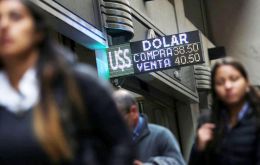
Argentina’s peso strengthened for the third straight day on Friday, driven by optimism that the government would sign a revised financing deal with the International Monetary Fund to include stricter fiscal measures and faster cash disbursements.
-
Saturday, September 22nd 2018 - 08:30 UTC
Argentina ready to launch a satellite to monitor natural disasters and soil moisture

Argentina is launching a new microwave imaging satellite to monitor natural disasters and soil moisture, in a long-term bid to bolster the farm sector, an industry that has historically been the backbone of the country’s economy.
-
Friday, September 21st 2018 - 09:32 UTC
Argentine Peso recovers strongly and with no support from the Central bank
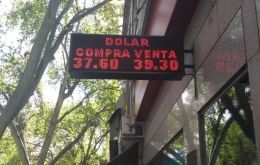
The Argentine Peso reacted strongly against the US dollar on Thursday following on an abundant private supply of greenbacks to satisfy demand, which kept the Central Bank out of the market for the first time since the beginning of the month. The dollar fell 2.8% and ended trading below 39 Pesos.
-
Friday, September 21st 2018 - 08:47 UTC
Argentine Peso at an equilibrium point, says head of Central bank

Argentina’s central bank now sees the Peso at an equilibrium level, chief Luis Caputo told market participants who attended a meeting with him on Thursday. The statement comes after two days of strengthening by the peso following a rout that sent it to a record intra-day low in late August.
-
Friday, September 21st 2018 - 08:31 UTC
Argentina/IMF making “important progress” on reforms for loan package, but no specific timeline

Argentina's budget proposal submitted this week is a key element in the reforms needed for a new loan package for the crisis-hit country, an International Monetary Fund spokesman said Thursday.
-
Friday, September 21st 2018 - 08:24 UTC
Argentine stock market booming with new highs for seventh day running
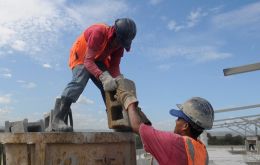
The Argentine stock market is booming and on Thursday confirmed its seventh day running increase as investors are flocking encouraged by an imminent accord between the president Mauricio Macri administration and the IMF for a new loan package including reforms and a balanced budget in the next 18/24 months.
-
Wednesday, September 19th 2018 - 09:05 UTC
Argentine Peso slid on Tuesday but the Merval stock market climbed a strong 3%
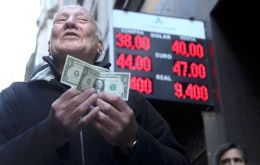
Argentina’s central bank sold US$ 261 million in reserves on Tuesday, the monetary authority said in a statement announcing its latest intervention in the foreign exchange market aimed at easing the fall of the local currency.
-
Tuesday, September 18th 2018 - 08:51 UTC
IMF's Lagarde: A no-deal Brexit would entail substantial costs for the UK economy
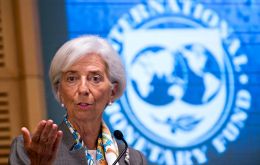
The International Monetary Fund has warned that a “no-deal” Brexit on World Trade Organization terms would entail “substantial costs” for the UK economy. IMF said that all likely Brexit scenarios would “entail costs”, but a disorderly departure could lead to “a significantly worse outcome”.
-
Friday, September 14th 2018 - 09:28 UTC
Argentine currency drops to a new record low of 39.90 pesos to the US dollar

Argentina's peso currency fell 3.51% on Thursday to close at a new record low of 39.9 per U.S. dollar, as market confidence ebbs away despite President Mauricio Macri's efforts to reassure investors. Dollar demand had risen on Thursday due to high liquidity sparked by an auction of treasury notes, traders said.
-
Thursday, September 13th 2018 - 10:39 UTC
IMF team in Buenos Aires for talks on the standby loan package
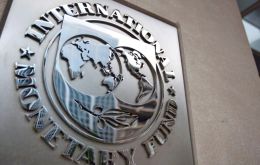
Officials from the International Monetary Fund are in Argentina as part of talks to strengthen and accelerate a crisis loan package, the global lender said Wednesday. The IMF and Buenos Aires agreed in June on a three-year, US$50 billion rescue lending programme but Argentina has since asked for a more rapid disbursement.
